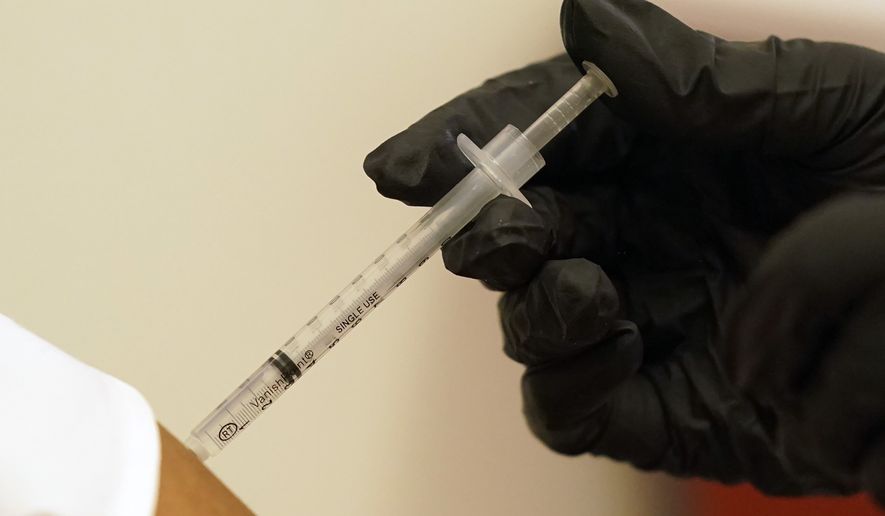The Food and Drug Administration on Friday postponed an advisory meeting on Pfizer-BioNTech’s vaccine for young children and will wait for data on the third dose from trials, meaning the rollout for ages 0 to 4 might not begin until April.
Senior officials said the FDA decided to scrap the Tuesday meeting based on information that is rolling in from Pfizer’s trial.
Initially, regulators planned to approve a two-dose regimen by the end of this month to accelerate the campaign while they waited on the data around a third dose, which many believe will be necessary to produce an adequate response against the virus and its omicron variant.
The two-step plan had been viewed as unorthodox before the FDA decided Friday to change course.
A senior FDA official blamed the fast-evolving virus situation for the switch, saying data from trials came in “so rapidly” amid the omicron surge that regulators felt it made more sense to look at the whole picture.
“It makes sense for us to wait until we have the data from the evaluation of a third dose before taking action,” said Peter Marks, director of the Center for Biologics Evaluation and Research.
In a separate statement, Pfizer said it expects an ongoing study to produce data on three-dose protection by early April.
FDA said it will update the public on the timing of its review once it receives third-dose data.
Dr. Marks said regulators will probably rely on real-life experience with the virus instead of lab-based antibody testing within the study group, given the sheer number of recent virus cases.
He acknowledged the change might upset parents who were eager to vaccinate their children and will be forced to rely on masking and other mitigation measures for a while longer. There are roughly 18 million children in the 0 to 4 age group.
The sudden shift could fuel confusion and mistrust that is rampant in the U.S. around the vaccine-approval process, but officials said they were trying to adjust to late-breaking developments to improve their review of Pfizer’s shots.
“We take our responsibility for reviewing these vaccines very seriously because we’re parents as well,” Dr. Marks said. “I hope this reassures people that the process has a standard, that the process is one that we follow and we follow the science in making sure anything we authorize has the safety and efficacy that people have come to expect from our regulatory review of medical products.”
Children ages 0 to 4 are the only Americans ineligible for protection from COVID-19 vaccines. Polls suggest about a third of parents are eager to get their kids immunized right away while others are in wait-and-see mode or don’t feel it is worth it, given that older groups have seen the brunt of disease from the pandemic.
Like the FDA, Pfizer cited brisk developments in its trial for the switch in strategy.
“Given that the study is advancing at a rapid pace, the companies will wait for the three-dose data as Pfizer and BioNTech continue to believe it may provide a higher level of protection in this age group. This is also supported by recent observations of three-dose booster data in several other age groups that seems to meaningfully augment neutralizing antibody levels and real-world vaccine protection for omicron compared to the two-dose regimen,” Pfizer said. “The extension allows the FDA time to receive updated data on the two and three-dose regimen, conduct a thorough evaluation of it and facilitate a robust, public discussion.”
For more information, visit The Washington Times COVID-19 resource page.
• Tom Howell Jr. can be reached at thowell@washingtontimes.com.




Please read our comment policy before commenting.